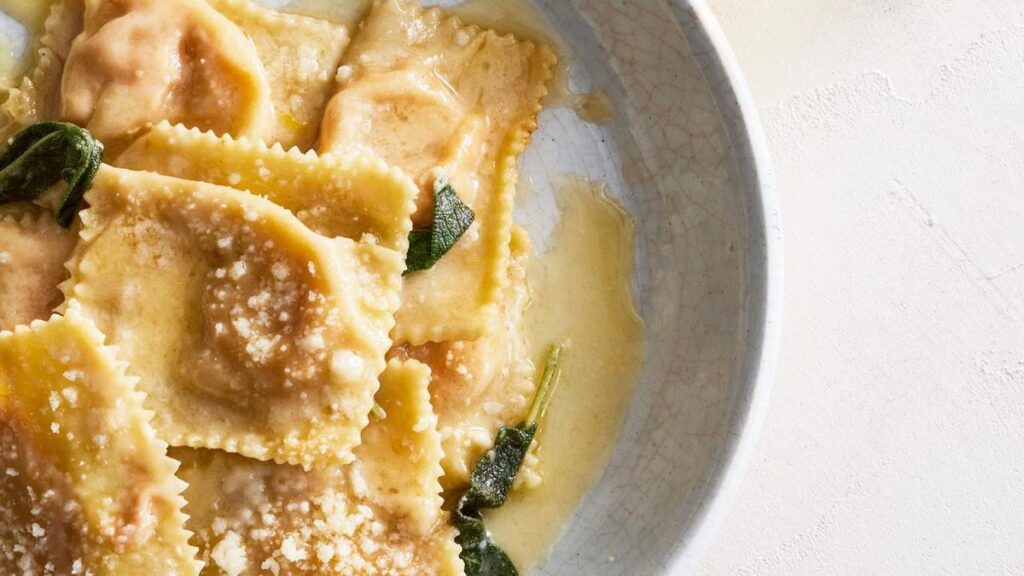
The U.S. Commerce Department has initiated a significant anti-dumping investigation that could impose a staggering 107 percent tariff on Italian pasta imports. This review stems from allegations that Italian pasta manufacturers have sold their products in the United States at prices lower than market value, thereby undermining local competitors. If implemented, the new tariffs would compound the existing 15 percent tariff levied during former President Donald Trump’s administration.
The potential tariff has sent waves of concern through Italy, where pasta is not only a culinary staple but also a crucial export. The U.S. represents approximately 15 percent of Italy’s €7.12 billion pasta export market, making it the largest importer of Italian pasta after Germany, according to data from the farmers’ association Coldiretti. Thirteen Italian producers would be impacted by these proposed tariffs, which could significantly increase prices for American consumers and shrink sales dramatically.
Sal Auriemma, owner of Claudio Specialty Food in Philadelphia, expressed his disbelief at the focus on pasta, suggesting that larger luxury items could be targeted instead. “Pasta is basic food,” he stated. “Something’s got to be sacred.”
The situation has escalated into a political issue, with Italian officials rallying against the proposed tariffs. Francesco Lollobrigida, Italy’s Minister of Agriculture, confirmed that the government is actively collaborating with the European Commission to counter the U.S. sanctions and support legal actions by the affected companies. Maros Sefcovic, the EU Trade Commissioner, emphasized the lack of evidence to support the U.S. claims and described the potential combined tariff as “unacceptable.”
Impact on Italian Producers and Consumers
Industry leaders, such as Margherita Mastromauro, president of the pasta makers sector of Unione Italiana Food, have pointed out that prices for Italian pasta in the U.S. are already higher than those for American-made alternatives, challenging the dumping allegations. She warned that these tariffs could be catastrophic for small- and medium-sized producers in Italy.
According to Lucio Miranda, president of consultancy group Export USA, a tariff of 107 percent would severely disrupt the flow of exports. “It’s not going to be something that you can just dump on the consumer and move on,” Miranda stated. “It will definitely be a deal killer.”
The Commerce Department’s investigation was prompted by complaints from U.S. companies, including 8th Avenue Food and Provisions, which owns the pasta brand Ronzoni, and Winland Foods, known for brands such as Prince and Mueller’s. The investigation has focused on Italian producers La Molisana and Garofalo, the two largest exporters. The Commerce Department indicated that any sale price below their production costs or their domestic prices could be deemed as dumping.
The allegations include claims that these companies failed to provide accurate information during the review process, which has complicated the analysis. A White House spokesperson, Kush Desai, noted that the Commerce Department had communicated the issues with the companies multiple times and received insufficient responses.
Looking Ahead: Final Decision and Industry Reactions
The proposed tariffs would not only apply to future imports but also cover the 12 months leading up to June 2024. The Commerce Department has stated that only 16 percent of total Italian pasta imports would be affected by these tariffs. A final decision is expected by January 2, 2024, with the potential for a 60-day extension.
In Benevento, Italy, home to the renowned pasta manufacturer Pasta Rummo, CEO Cosimo Rummo voiced his frustration over the looming tariffs. His company, which has been exporting to the U.S. for years, generates approximately €20 million in annual sales from this market. Rummo criticized the tariffs as “completely senseless,” questioning why consumers would consider paying $10 for a pack of pasta, equating it to the price of a bottle of wine.
As the situation continues to develop, U.S. retailers like The Italian Store in Arlington, Virginia, are preparing for potential changes. Owner Robert Tramonte has assured customers that enough inventory exists to maintain prices steady until Easter. He noted the importance of authentic Italian products to his clientele, emphasizing that alternatives produced domestically often do not replicate the same quality or taste.
The unfolding events surrounding Italian pasta imports highlight not just economic implications but also touch on cultural significance, as pasta remains a cherished component of Italian heritage.






